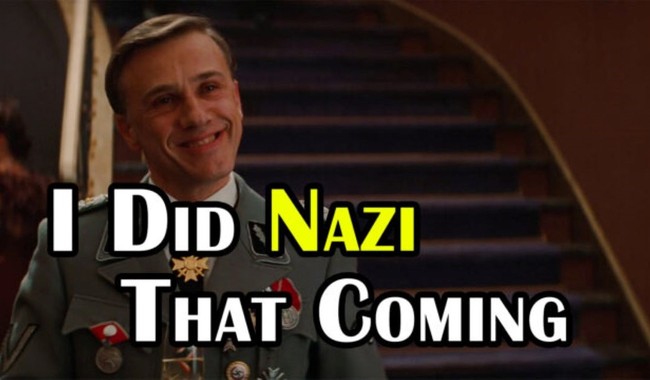Politics
Illinois Governor JB Pritzker Denies Calling Republicans ‘Nazis’ Amid Controversy

Illinois Governor JB Pritzker recently asserted that he has never referred to Republicans as “Nazis,” a claim that has sparked significant controversy. During a press conference, Pritzker responded to a question about the frequent comparisons made by some Democrats between President Donald Trump and historical figures such as Adolf Hitler. His denial has since prompted a wave of scrutiny and fact-checking from various sources.
Pritzker’s statement is in direct contrast to a plethora of past comments made by him and other Democrats. Critics quickly pointed out that a simple search reveals numerous instances where similar language has been used. For many, this raised questions about the accuracy of Pritzker’s claims and his understanding of the historical implications of such comparisons.
Fact-Checking the Claims
Following Pritzker’s assertion, social media users and political commentators began sharing evidence that suggests otherwise. Various posts highlighted previous remarks made by Pritzker and other Democratic officials that invoked Nazi imagery in political discourse. These discussions have reignited debates about the appropriateness of such comparisons in contemporary politics.
One notable response included video clips from past events where Pritzker used language that could be interpreted as equating Republicans with Nazi ideology. Critics argue that this rhetoric detracts from meaningful political discourse and can be damaging to the political climate.
Pritzker’s defenders maintain that he did not directly label Republicans as Nazis but rather suggested that their actions or policies could be likened to those of historical fascists. This distinction has been a focal point in ongoing discussions, with some commentators suggesting that such a nuanced interpretation may not effectively mitigate backlash from political opponents.
Public Reactions and Implications
The fallout from Pritzker’s comments has not been limited to social media. Political analysts are closely observing the impact of this controversy on his standing within the Democratic Party and among Illinois voters. Some experts suggest that the use of extreme comparisons can alienate moderate voters who may be turned off by incendiary language.
As the political landscape continues to evolve, the implications of rhetoric like that used by Pritzker could play a significant role in shaping voter sentiment heading into future elections. The challenge for political leaders remains balancing passionate advocacy with responsible communication. This incident serves as a reminder of the power of words and their potential consequences in a highly polarized environment.
In summary, JB Pritzker’s recent claims regarding his language about Republicans have sparked a significant response, both in terms of public debate and political analysis. As 2025 approaches, the scrutiny of such statements will likely continue, influencing both the narrative and the dynamics of the political landscape in Illinois and beyond.
-

 Lifestyle3 months ago
Lifestyle3 months agoLibraries Challenge Rising E-Book Costs Amid Growing Demand
-

 Sports3 months ago
Sports3 months agoTyreek Hill Responds to Tua Tagovailoa’s Comments on Team Dynamics
-

 Sports3 months ago
Sports3 months agoLiverpool Secures Agreement to Sign Young Striker Will Wright
-

 Lifestyle3 months ago
Lifestyle3 months agoSave Your Split Tomatoes: Expert Tips for Gardeners
-

 Lifestyle3 months ago
Lifestyle3 months agoPrincess Beatrice’s Daughter Athena Joins Siblings at London Parade
-

 World3 months ago
World3 months agoWinter Storms Lash New South Wales with Snow, Flood Risks
-

 Science3 months ago
Science3 months agoTrump Administration Moves to Repeal Key Climate Regulation
-

 Science2 months ago
Science2 months agoSan Francisco Hosts Unique Contest to Identify “Performative Males”
-

 Business3 months ago
Business3 months agoSoFi Technologies Shares Slip 2% Following Insider Stock Sale
-

 Science3 months ago
Science3 months agoNew Tool Reveals Link Between Horse Coat Condition and Parasites
-

 Sports3 months ago
Sports3 months agoElon Musk Sculpture Travels From Utah to Yosemite National Park
-

 Science3 months ago
Science3 months agoNew Study Confirms Humans Transported Stonehenge Bluestones









